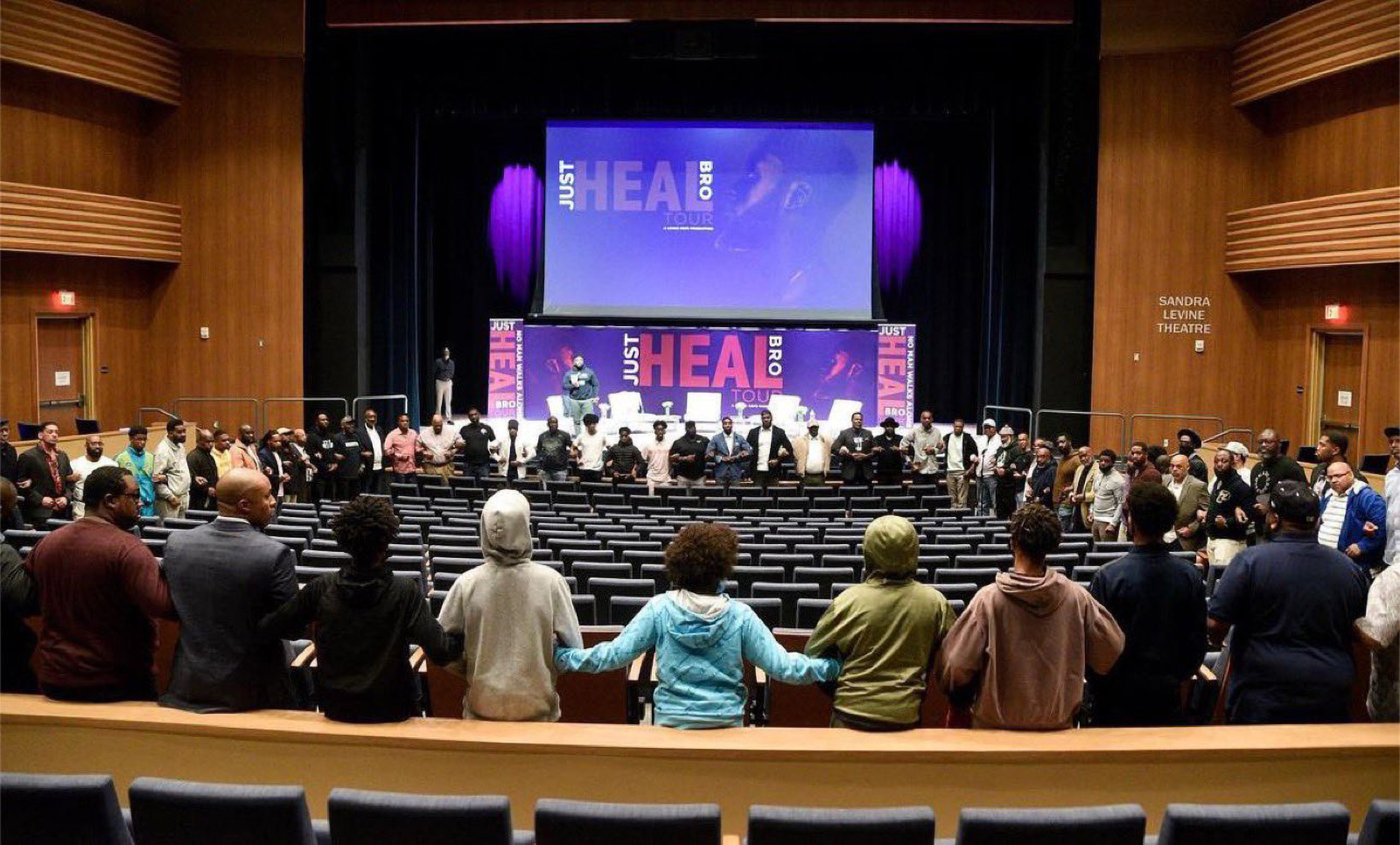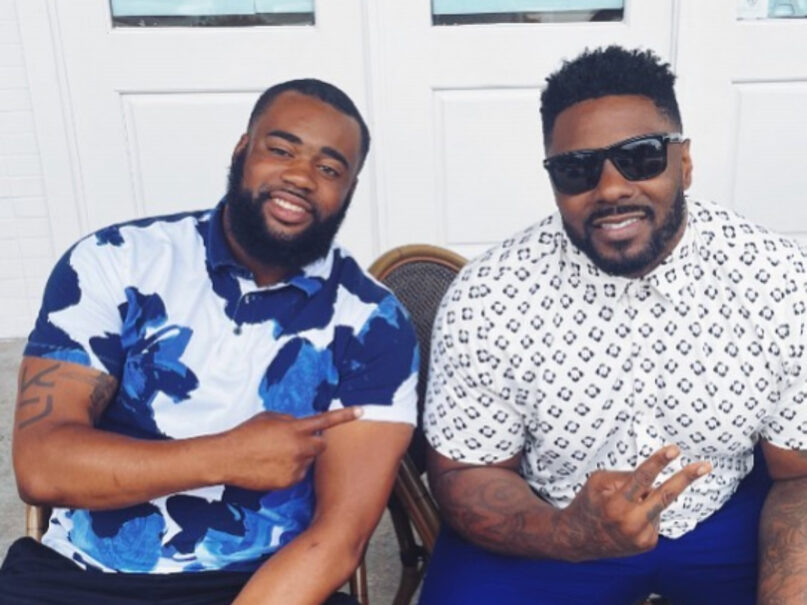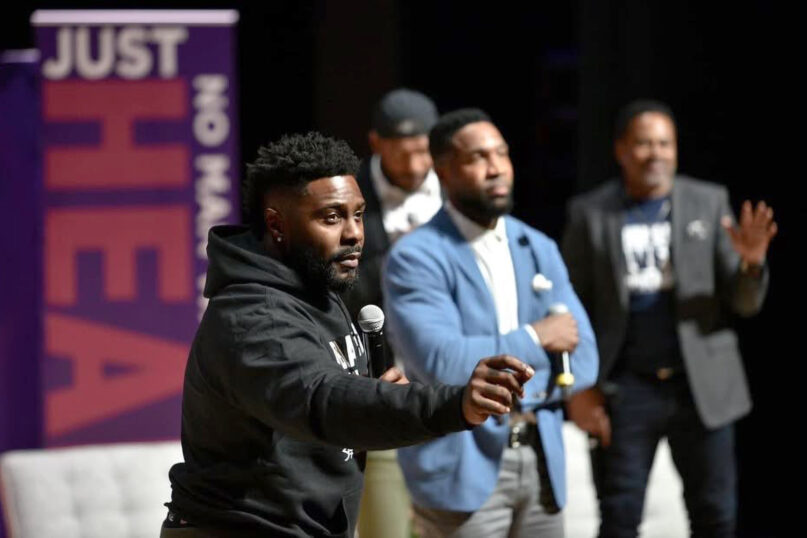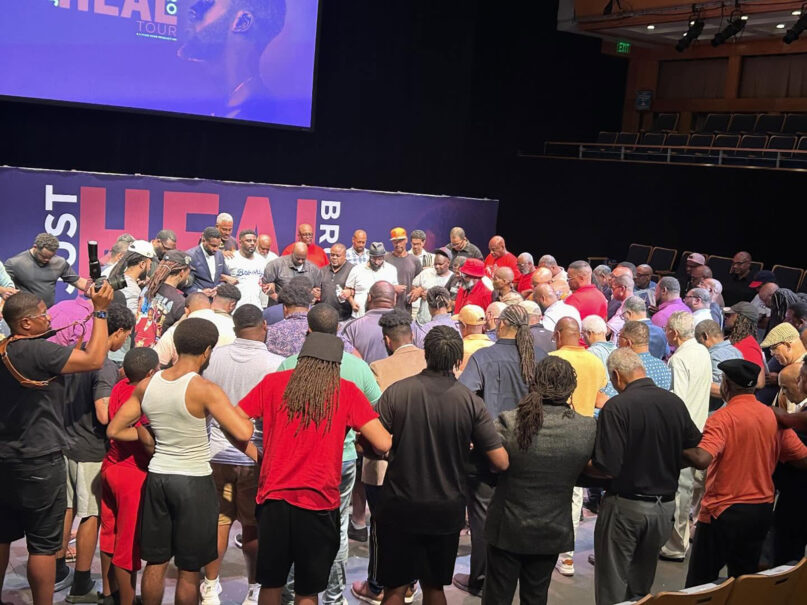
Loading your audio article
(RNS) — Jay Barnett may have been raised in the church, but he met God, he said, as an adult in therapy.
The son of a pastor, Barnett, now 42, grew up in Mississippi attending a Baptist church and an Assemblies of God congregation. He preached his first sermon at age 9, and by age 12 had spoken at Christian conferences and youth events across the state.
Barnett is still speaking at churches — and on podcasts and social media — now as a family therapist, mental health expert, former pro-football player and author. The focus of his message has shifted, though, along with his understanding of God.
“God had been presented as this big, bad guy in the sky that is waiting to punish you if you do wrong,” said Barnett, who lives and works in Dallas and travels for speaking gigs. But in therapy, he connected with the human aspect of Jesus’ nature and realized God, as Jesus, experienced rejection, anxiety and overwhelm, too. “I think to understand humanity is also to understand God,” he said.
Part of understanding humanity, Barnett argues, requires confronting mental health challenges head-on, particularly in religious contexts. Rather than responding to mental illness by spiritualizing or ignoring it, Barnett said churches must acknowledge mental illness and emotional struggles as a part of life and not an indictment of one’s faith.
Such an approach would have made all the difference for him as a child, he said. As an adult, he’s working to equip the next generation — especially Black men — to proactively process their emotions and adverse life experiences to experience holistic healing.

Brandon Prince, left, and Jay Barnett. (Photo courtesy Brandon Prince)
Brandon Prince, executive director of Hope For Youth, a Christian organization in Houston working to empower urban youth, met Barnett over a decade ago as a high school junior. He called Barnett “a Paul to my Timothy,” referencing the biblical figures’ mentor-mentee relationship.
“Jay has been God’s voice in the vessel of a former football player,” said Prince, adding Barnett’s message is consistent whether he’s speaking on a podcast or praying with someone over the phone.
Back when he was a teenager, Barnett didn’t have the space to address pain, let alone the language to name it, he explained. His father was often distant, and when his parents divorced, he experienced depression and attempted to cope via self-injury. His community, which prioritized spiritual healing, didn’t have the tools to connect him with professional help.
A year into his 30s and following a stint playing professional football, Barnett had survived two suicide attempts — first at age 23 after transitioning from the Green Bay Packers to the Arena Football League, and then after his career in the sport ended.
“I just felt lost. And, you know, not being here was the way that I felt that would be better because I didn’t know anything else besides football,” said Barnett.
When his second suicide attempt was unsuccessful, he confronted his need to get consistent help through therapy. In the process, he re-examined what he’d been taught about the Christian religion, encountering Jesus not as a holier-than-thou deity but as a God who experienced the fullness of the human condition.

Jay Barnett, left, speaks during a “Just Heal, Bro” Tour event. (Photo courtesy Jay Barnett)
“It allowed me to see God, or to see Jesus, in a very human way: the moments he had when he stepped away, the moment in the garden where he’s literally crying out to God because he’s having a breakdown,” Barnett said. Jesus, he observed, though perfect, encountered a spectrum of emotions, giving Barnett permission to do so himself.
A few years into consistent therapy, Barnett began to mentor kids living in group homes. Part of his role involved teaching kids facing behavioral challenges how to regulate their emotions. That knack eventually grew into what Barnett experienced as a nudge from God to become a certified therapist.
In 2019, Barnett graduated from North Central University in Minneapolis with a master’s degree in marriage and family counseling.
“During this time, I remember sitting in prayer, God speaking to me and saying that something was coming, and you’re going to be needed. And I didn’t know what that meant. So I just listened,” he recalled.
The following year saw the rise of the COVID-19 pandemic and the murder of George Floyd, events that laid bare the nation’s mental health crisis. On podcasts and on social media, Barnett began calling attention to the mental health needs of Black men, speaking about how to heal from parental wounds, manage depression and deal with rejection. When his video encouraging men of color to go to therapy gained over 200,000 views, it inspired him to write the 2021 book, “Just Heal, Bro.” Part testimony and part journal, it aims to help readers process experiences, articulate thoughts around inadequacy, stress and boundaries, and outline hopes for their future purpose.

Attendees circle up during a “Just Heal, Bro” tour stop at Pittsburgh Public Theater in Pittsburgh, Penn., in June 2024. (Photo courtesy Living Hope Co.)
The message resonated, and a few years later, resulted in the “Just Heal, Bro” tour, led by Barnett and a handful of other Black male clinicians and mental health advocates. They traveled to 36 cities in three years, reaching 18,000 men with their message about prioritizing mental and emotional healing.
“No one had ever seen a therapist that was a former pro-athlete that was talking about mental health, but also shared his story,” he said. “I’m here not just as a clinician, not just as an advocate, not just as a speaker, but I’m here as a survivor, right? I’m here as somebody who’s lived it. I know what looking at death in the face looks like.”
In 2023, Barnett was tapped to be Grand Marshall of the American Psychiatric Association’s Moore Equity in Mental Health Initiative, a role that involves speaking at community events and making mental health education more accessible. And though his platform has grown, Barnett has continued to mentor men on a personal level. Robert H. Marshall Jr., founder of I Am Man, Inc., and The Survivor’s Circle, two organizations focused on male empowerment and supporting male survivors of sexual abuse, respectively, said Barnett has been an indispensable supporter of his work.
Barnett also estimates he’s spoken at 20 churches over the last three years on mental health and spirituality, noting congregations can improve their approach to mental health by distinguishing between needs that can be met through counseling and needs that require treatment from trained professionals.
He also called on churches to discuss mental health from the pulpit and make clear that struggling with mental illness does not mean a person’s salvation is in jeopardy.

Robert H. Marshall Jr. (Courtesy photo)
“You can look at the Bible and see the DSM Five in almost every story,” he said, referring to the “Diagnostic and Statistical Manual of Mental Disorders, Fifth Edition.” “I think when we don’t connect the Bible to people’s lives in real time, we miss opportunities for people to even think about their mental health.”
Incrementally, Barnett said he is seeing a shift in the churches and communities he visits. Mental health concerns are gradually losing their stigma, he said, and pastors and leaders are gaining language and tools to connect people to the life-saving help they need. Marshall Jr. attributes that shift to those like Barnett doing grassroots work to revolutionize how Black men, especially, discuss mental and emotional wellbeing.
“I don’t think we’re just a part of it. We’re leading it. We’re provoking it. We’re becoming interrupters within systems where men are literally killing themselves,” Marshall Jr. said about the changes he’s seeing. “I feel often that religious spaces shift a lot slower than we see in non-religious spaces. But I do see this interruption where more people are saying, hey, men matter, too. Our boys matter, too.”

 Arabic
Arabic Chinese (Simplified)
Chinese (Simplified) Dutch
Dutch English
English French
French German
German Italian
Italian Portuguese
Portuguese Russian
Russian Spanish
Spanish